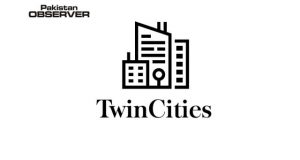Zubair Qureshi
The excise duty imposed on cigarettes in Pakistan remains the lowest as compared to other countries of the world, resulting in enormous increase of cigarette consumption and revenue loss.
This is revealed in a research study “Regional Tobacco regime and its implications for Health,” conducted and released by the Sustainable Development Policy Institute [SDPI], a think-tank in Islamabad.
The study finds out that the main factor leading towards the failure of tax regime is that the success is gauged through revenue generation instead of achieving health goals.
The Federal Board of Revenue [FBR], a central body to administer the whole taxation process, faces severe resource constraints to effectively implement a suitable tax regime, it said.
Pakistan with the lowest prices of cigarettes in the world was meant to provide tax relaxation to the tobacco industry as happened in the year 2017, wherein a third tier had been introduced by FBR with a 50 percent decrease in the excise duty.
According to the study, the tobacco industry flourished by leaps and bounds on the behest of the revenue to be collected by the national exchequer. There is a clear lack of objective policy, policy instruments and actions on part of FBR that can ensure a decent tax rate and higher prices.
It also leads to an increase in health issues vis-à-vis revenue generation is not sufficient enough to cater the needs of the prevalent health challenges being faced by Pakistan, it said, adding that increase in tobacco taxation is the need of the hour for controlling the consumption of cigarettes and for increasing the revenue of the national exchequer.
According to the World Health Organization, more than 1.3 billion people consume tobacco products daily, with around 8 million deaths annually across the globe. The WHO has termed tobacco as an epidemic which has very severe short- and long-term repercussions on public health.
The WHO asserts that high taxation and increased prices always resulted in the decreased use of tobacco products. If all the countries impose at least 50 percent excise duty on a cigarette pack, the number of tobacco consumers would decrease by 49 million.
In Pakistan, there are 22 million tobacco users, wherein 60% are adolescents. Resultantly, 1.5 million cases of oral cancer are reported by Pakistan Medical Association on a yearly basis. It is because of the fact that success of the tobacco sector is gauged through revenue generation instead of achieving health goals.
To discourage smoking and boost revenue, the study suggests the government to introduce exhaustive tax reforms as a key to success, which are implemented strictly by an empowered FBR.
In addition to excise duty, Pakistan should also levy other taxes like sin tax and value added tax to comply with the WHO rules which suggest taxation of about 70 percent to control open availability of tobacco products.










